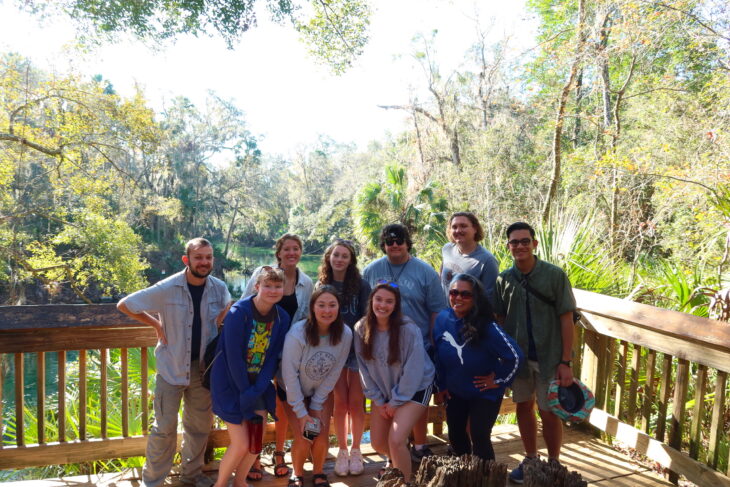 Christian Hayes
Christian Hayes Dr. Christian Hayes is an assistant professor of biology, and is the director of Marine Science at Waynesburg, who by his own admission, also is very well-trained in biology and ecology. He received his bachelor’s in environmental science with a minor of biology at Cedarville University in Ohio and later his master’s in biology at Loma Linda University in California. From there, Hayes received his doctor’s degree in coastal sciences at the University of Southern Mississippi. For a man that is well traveled, how did he find Waynesburg?
“I came to Waynesburg University because I was looking for a job where I could teach marine biology at a small Christian school and make an impact on student’s lives. Having previously taught at two other Christian Universities, I wanted to be part of a Christian community where I could share my faith and get to know my students,” Hayes said, while further elaborating on his journey to Waynesburg. “I finished my dissertation in summer of 2021 and was applying for different university teaching jobs, one of which was the position at WU. I did not know at all if the job at WU would be a good fit, but as WU was the only university that offered me a contract, I trusted God that coming here was His plan. It really has been a good fit, which has been very encouraging.”
Being that Waynesburg is home to a lot of ponds and rivers but not many other water sources, it could have been challenging to teach marine biology at Waynesburg. For Hayes though, he found a way to adapt to his new environment.
“Teaching marine biology in Waynesburg has its share of challenges. primarily due to the complete lack of a large body of water nearby. The closest thing we have to an ocean is Lake Erie, which is really quite different. To help train my students in understanding marine and aquatic systems, I use a variety of different strategies,” Hayes explained. “First, I use the marine lab here on campus to help train students on the principles of proper animal care and aquarium maintenance. I also use the lab to house specimens, such as anemones and fiddler crabs that I use for labs in my classes. I also conduct a regular service trip down to Florida every fall in order to expose my students to different marine habitats and get some hands-on experience working in them. Finally, my students complete their final year in their program at Coastal Carolina University in order to get practical experience doing field work in marine environments.”
When it came to this journey, Hayes reflected on how his first steps into the world of marine biology came about.“My passion for marine biology is rooted in my love for the natural world and my faith. I grew up in Washington state near the Puget Sound, a large inlet of marine water that is full of diverse marine life. Growing up exploring the Puget sound I grew to love the world God created,” Hayes said. “When I went to college, I had the opportunity to take some field courses in marine biology and had some amazing professors who motivated me to pursue it further. It was probably once I had finished my masters working with sea turtles that I knew I wanted to make a career in marine biology and teach others about God’s Creation.”
